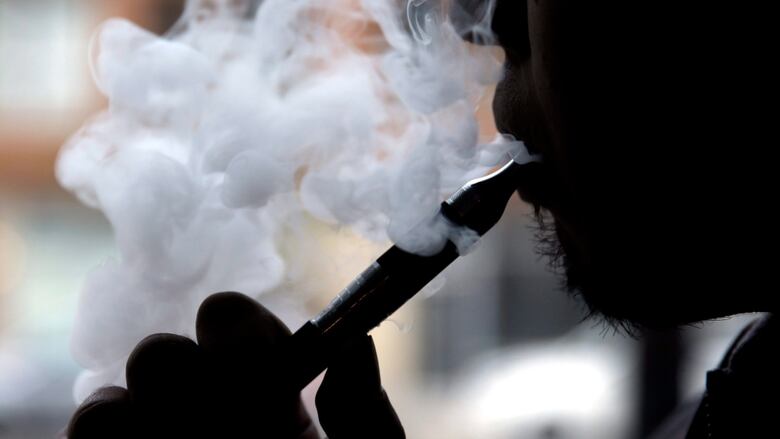B.C. school district seeks to educate students about vaping risks
Cowichan Valley School District is concerned with the number of young people who are trying e-cigarettes

The Cowichan Valley School District on Vancouver Island is exploring providing an education program to outline potential risks related to e-cigarettes.
The school board recently updated its existing smoking policy to include vaping. The use of both tobacco and e-cigarettes are not allowed on school property.
But school board chair Candace Spilsbury says the board plans to go further and start warning parents and students about potential risks associated with vaping.
"Knowing that is risky behavior, we became really concerned and think that we need to do something about that," Spilsbury said.
The school board has not collected data on how many of its students are vaping, but a national survey suggests nearly one in four B.C. youths in grades 7 to 12 has tried an e-cigarette.
That rate exceeds current figures for youth smoking.
"We are going to try to raise the awareness for parents, particularly and, hopefully through that, students and the broader community."
The school board also hopes to build on the success of youth anti-smoking campaigns that have helped, Spilsbury said.
Trend accelerating
Rates of youth vaping have accelerated at an alarming rate in recent years, said David Hammond, a professor in the school of public health at the University of Waterloo.
"We have a new type of e-cigarettes or vaping device that delivers nicotine much more efficiently, so the big question is, Is it a fad?"
The rising rates are concerning because it could be years before the risks of exposure to chemicals in vaping products are fully understood, he said.
"What we do know now is that vaping is not harmless. There are chemicals in there that with repeated exposure over time are likely to cause damage," Hammond said.
In B.C., vaping products can only be sold to people who are over 19 years of age. Stores must also take steps to ensure youth are not exposed to product displays or advertising related to vaping.
Hammond says he is encouraged schools are taking on the issue of youth vaping, but he'd like to see more regulation of the industry to reduce things such as flavours that are attractive to young people.
However, Tim Stockwell, the director of UVic's Canadian Institute for Substance Use Research, says it's important to keep in mind that not all vaping products include nicotine.
And e-cigarettes are still considered much less harmful than smoking.
Balanced approach needed
"There's a lot of hysteria about possible negative effects and scare stories about vaping" Stockwell said.
"If they are going to talk about risks of harm, it should be balanced and it should give information that it is much safer than using tobacco."
A recent study by the UVic centre also found fears that vaping was a gateway to smoking are unfounded.
The Cowichan Valley School district says it plans to work with Island Health to develop its vaping education program for its schools.